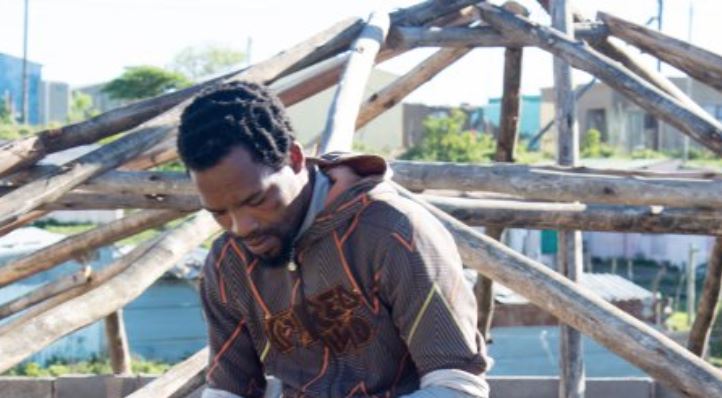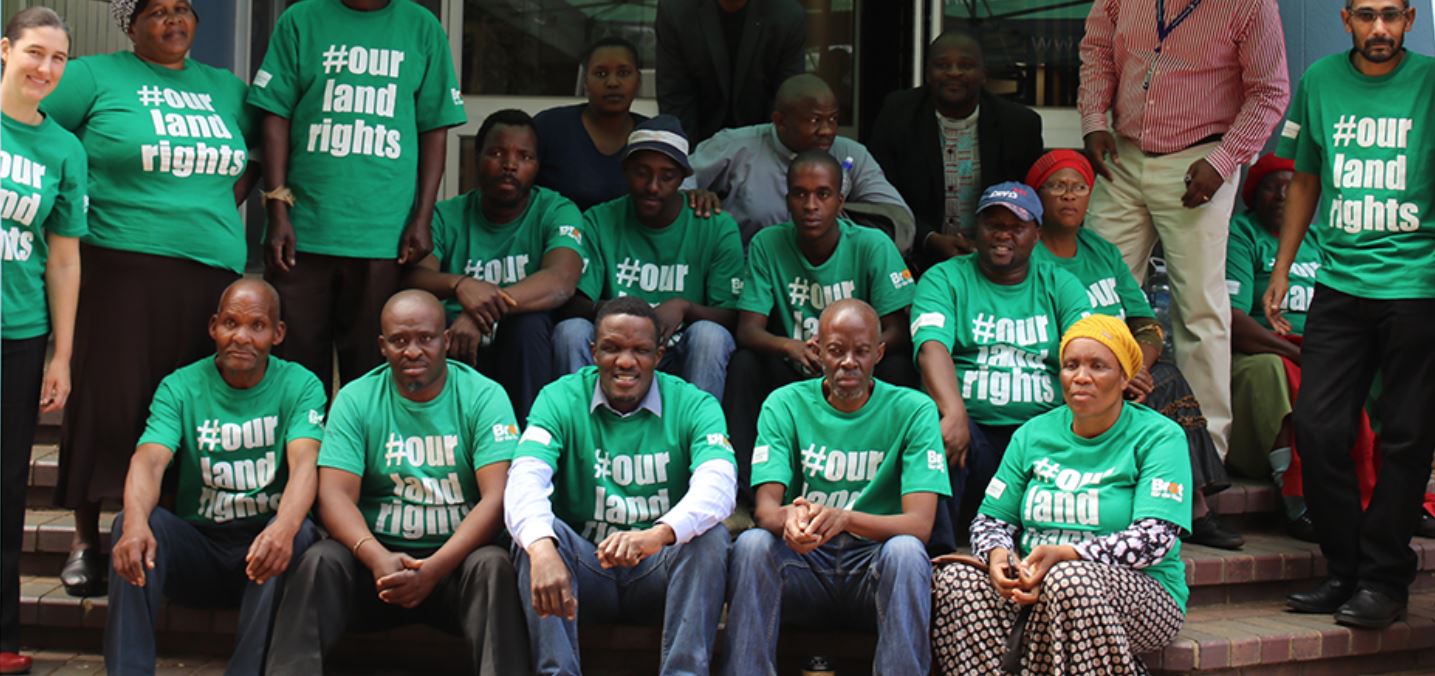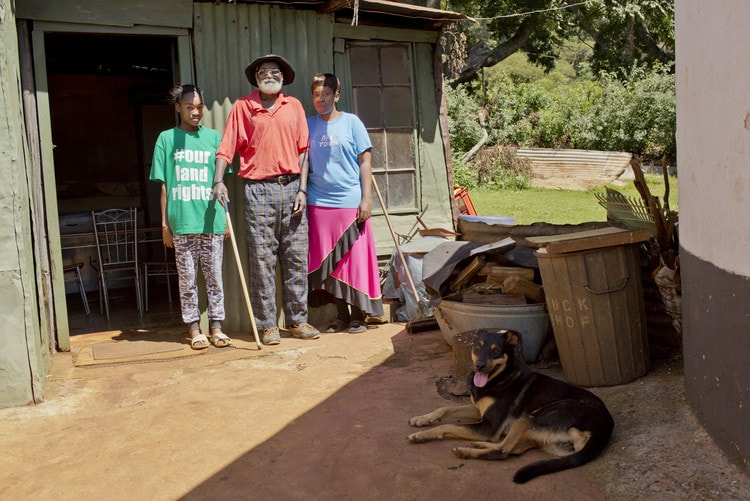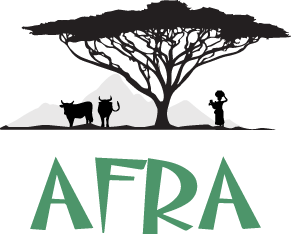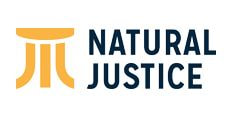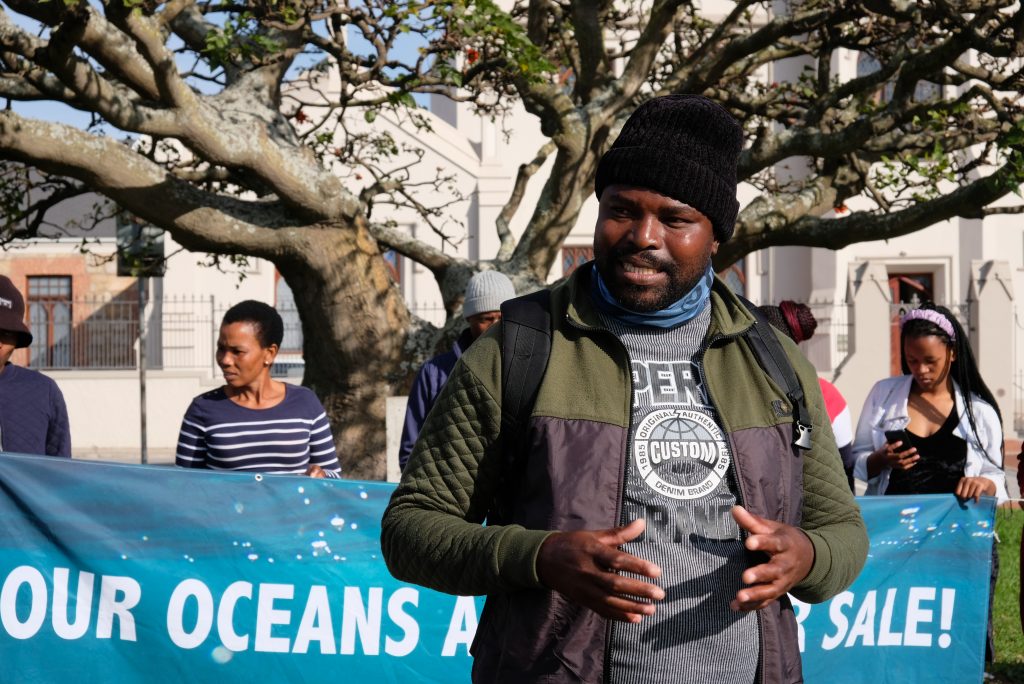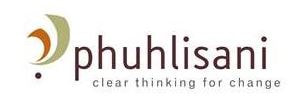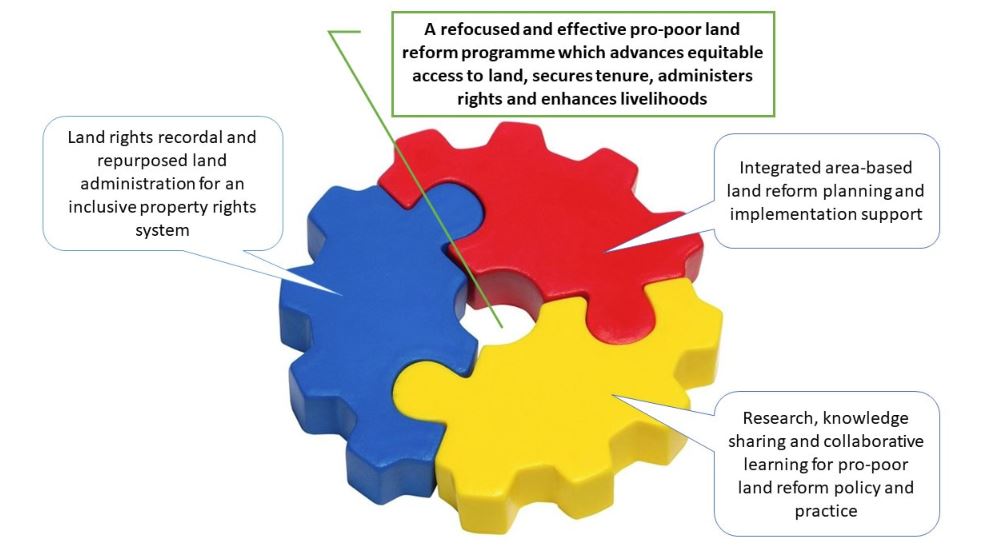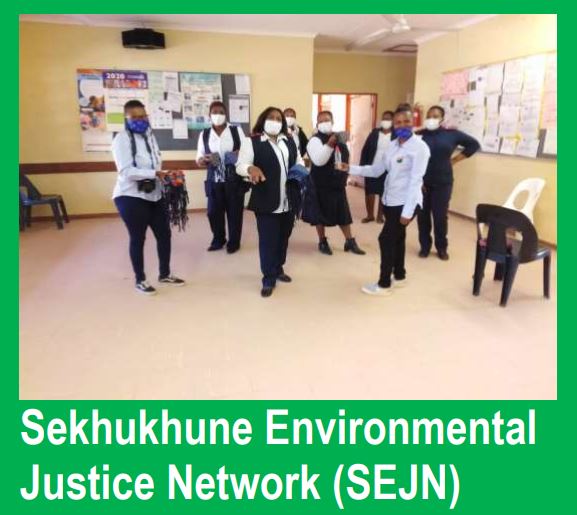LandNNES member organisations
Organisations apply for membership of the network. The composition of the membership is dynamic, changing over time with organisations linking together around shared interests and joint campaigns.
AFESIS-CORPLAN
|
Afesis-corplan is a progressive, non-governmental organisation that has contributed to community-driven development and good local governance in the Eastern Cape since 1992. Registered as a not for profit Company, Afesis-corplan operates under the governance of a capable Board of Directors. Eighty percent of its staff have professional and postgraduate qualifications and ninety percent come from historically disadvantaged communities.
The organisation has positioned itself to support communities, community groupings and citizens to effectively engage with the state. This position guides all of its work. Its programmes on sustainable human settlements and good governance aimto support citizens to actively unlock and enhance the state’s potential to deliver responsive services and targeted development initiatives. Afesis-corplan specialises in the use of participatory methods – most of which it has developed and tested over time – with a broader aim to empower citizens to take their rightful place in a participatory democracy. |
The Association for Rural Advancement (AFRA)AFRA has played a key role in the establishment of LandNNES and has provided crucial institutional support. AFRA was established in South Africa in 1979. AFRA is an NGO that focuses on promoting land rights and improving the living conditions of rural communities in South Africa. It currently has a particular focus on the rights of famworkers.
Historically AFRA's work has centered around three main areas:
AFRA website AFRA Twitter AFRA Facebook
|
The Alliance for Rural Democracy

The Alliance for Rural Democracy (ARD) is a collective of civil society organizations and community groupings championing rural democracy and restorative land justice.
Our symbol is the traditional umtshayelo wesandle – the hand broom found in every rural household. The broom symbolises the power of organisation – the many bristles representing individuals, communities and organisations who are bound together by a common purpose The ARD organizes across the country to highlight the implications of the Traditional and Khoi-San Leadership Bill and Traditional Courts Bills which seek to entrench apartheid geographies with its proposals to establish traditional councils based on the apartheid governance framework established in terms of the 1951 Bantu Authorities Act. Our campaign highlights the continued othering of rural people because of the provisions allowing traditional leaders to enter into negotiations and partnerships with third parties on behalf of communities with very little consultation. Communities should have the right to say no to land deals or investments and also the right to decide on the types of development and interventions that they want to support. The ARD succeeded in amplifying the voices of communities, especially rural women who have been at the forefront of opposition to the Bantustan Bills. ARD website ARD Twitter |
Farmer Support Group
The Farmer Support Group (FSG) was established by the Department of Plant Pathology of the, then, University of Natal, with the aim of making relevant scientific knowledge available to smallholder farmers. It now conducts action research to address issues pertinent to resource-constrained farmers. It also provides training, advice and project support in sustainable farming (including agroecology), nature conservation, strengthening local institutions, and enterprise development.
Land Access Movement of South Africa
The Land Access Movement of South Africa (LAMOSA)An independent Community Based Organization (CBO) advocating for land and agrarian rights, and substantive democracy through facilitating sustainable development. LAMOSA was formed by 48 dispossessed communities in 1991, to mobilize and empower its affiliates to collectively fight discriminatory colonial and apartheid forced removals, racial and gender discrimination, and to play an active role in contributing towards the redress, dismantling and eradicating apartheid poverty and its manifestations. LAMOSA was formally registered as Non-profit organisation in 2001. LAMOSA is an innovative advocacy, transformational and progressive development facilitation agency that has creatively applied Rights Sustainable Livelihoods (RSL) tools of analysis and People Centered and Development (PCD) approaches to understand the challenges of every phase of dispossessed and landless rural people struggles.
Nkuzi Development Association
|
The Nkuzi Development Association NPC was created in 1997 to help communities in the Makhado area of Limpopo province make land claims after the Restitution of Land Rights Act No. 22 of 1994 was introduced.
The goal of the association is to empower disadvantaged women and men so they can assert their rights and create sustainable livelihoods. This is based on access to land, secure tenure, basic services, and economic development. The objectives of Nkuzi Development Association are to empower landless people to drive the land reform process, inform farm residents of their land rights, improve the debate on pro-poor agrarian reform strategies, and provide legal and paralegal support for poor and landless people to exercise their rights. The association serves landless people and farm residents. Nkuzi is currently involved in litigation to challenge the constitutionality of the Tribal Levies Act in Limpopo. |
Natural Justice
|
Natural Justice is an organisation rooted in the struggles of communities in Africa. As a team of pioneering lawyers and legal experts, we specialise in human rights and environmental law in pursuit of social and environmental justice.
Natural Justice strives to enhance the collective rights of people and protect the sacred relationships that indigenous peoples and local communities have with nature. Our work is informed by the values, knowledge and self-determination of the communities whom we stand in solidarity with. Through legal empowerment, research, policy influencing and litigation, and as part of coalitions and campaigns, we support communities to know the law, use the law and shape the law. Natural Justice has three main pillars:
|
Phuhlisani NPC
Phuhlisani NPC is based in Cape Town and works primarily in the Western, Eastern and Northern Cape. We are practically involved in
- Developing processes and institutional models for area-based land reform planning and implementation.
- Designing and testing frameworks for inclusive property rights and land administration
- Documenting case studies and developing linked learning programmes.
- Curating a knowledge base of reliable information disseminated through knowledgebase.land.
|
We bring together specialist researchers and experienced practitioners spanning a variety of disciplines.
We collaborate closely with key organisations and networks in the land sector. Our starting point is the recognition of complexity - that in every setting there are multiple actors, different stories and ways of seeing reflecting unequal relations of power, conflicting interests and needs. We aim to hear these different voices as the foundation for crafting policy proposals, development approaches and practical programmes which promote social justice, equity and result in improved livelihoods and wellbeing. Phuhlisani website Knowledgebase.land website Knowledgebase.land Twitter |
Rural Legal Trust
The Rural Legal Trust was established in 2000 to provide legal services to farmworkers, farm dwellers, and the rural poor in South Africa whose rights were being violated. It has worked in the Free State, Mpumalanga, North West, and Northern Cape provinces. Programmes have included the training and mentoring of community-based paralegals and farmworker representatives on various aspects of the law and on topics related to the provision of basic services to poor people and dealing with the eviction of people from farms.
Rural Legal Trust website
Rural Legal Trust Twitter
Rural Legal Trust website
Rural Legal Trust Twitter
Sekhukhune Environmental Justice Network
|
SEKHUKHUNE ENVIRONMENTAL JUSTICE NETWORK (SEJN) is a Non Profit Organisation / NPC that was formed in 2016 and registered on the 17th of May 2017. The organisation was formed by unemployed youth after realising the need in the communities of Sekhukhune and later registered by leaders from different villages in Sekhukhune District. Since then SEJN has expanded and seeks to create jobs linked to environmental management awareness and waste management for community members including young people affected by unemployment.
SEJN operates Limpopo Province within the Fetakgomo Tubatse Municipality sub-region. The organisation started in three different villages: Ditwebeleng, Ga-Mashabela and Ga-kgwete. We also introduced the organisation to another 9 mining affected communities. These villages are Modimolle, Mantsekane, Magobading, Morapaneng, Dithabaneng, Ga-Mashabela, Ga-Makgopa, Makgaake and Serafa. SEJN now has more than 10 branches across theses villages. SEJN is now looking to work all over the district by extending to Makhudutamaga Municipality and other municipalities in Sekhukhune, starting with mining affected communities as a priority. SEJN website SEJN Facebook |
The Socio-Economic Rights Institute (SERI)
The Socio-Economic Rights Institute of South Africa (SERI) is a non-profit human rights organisation. We work with communities, social movements, individuals and other non-profit organisations in South Africa and beyond to develop and implement strategies to challenge inequality and realise socio-economic rights.
SERI’s conviction is that it is the people who are on the receiving end of poverty and inequality who are best placed to devise and implement strategies to challenge them. We provide legal advice and representation, research services and advocacy support to our clients and partners. We act to protect and expand the political spaces in which individuals and communities organise and press for social change.
SERI’s conviction is that it is the people who are on the receiving end of poverty and inequality who are best placed to devise and implement strategies to challenge them. We provide legal advice and representation, research services and advocacy support to our clients and partners. We act to protect and expand the political spaces in which individuals and communities organise and press for social change.
The Support Centre for Land Change
The Support Centre for Land Change is a land rights and land justice organisation, working with primarily rural communities in the Garden Route, Central Karoo and western regions of the Eastern Cape. SCLC focuses on key issues that include labour-and tenure rights of farm and forestry workers and dwellers, access to and sustainable use of land and resources for small-scale subsistence farmers and producers. SCLC supports communities resisting land “developments “that threaten their homes, livelihoods, health and heritage. The work of the organisation is rooted in human and constitutional rights with land justice as the point of departure.
Surplus People Project (SPP)
|
The Surplus People Project (SPP) was established in the 1980′s to publicise and support communities in the struggles against apartheid state forced removals. This culminated in the publication of the seminal five volume SPP reports documenting some of these forced removals. SPP emerged from the radical liberal tradition in South Africa and in the post-apartheid era, SPP’s focus shifted to support community struggles for agrarian transformation, including food sovereignty, equitable land ownership and alternatives to dominant models of production
|
Transkei Land Service Organisation (TRALSO)
Transkei Land Services Organisation advocates for and facilitates equal, secured access to land and other natural resources to promote land rights and sustainable livelihoods for resource poor rural communities in the Eastern Cape.
TRALSO Facebook
TRALSO Facebook
Women Affected by Mining in United Action
Since its inception in 2012, Mining Affected Communities United in Action (MACUA) and Women Affected by Mining in United Action (WAMUA) have played a significant role in starting to re- imagine the country’s mining sector. From the time of its formation, MACUA has consistently put forward a people`s centered form of power, which aims to end the centuries of exploitation and colonial dispossession of our land and minerals.
West Coast Food Sovereignty and Solidarity Forum (WCFSSF)
The West Coast Food Sovereignty and Solidarity Forum works mainly on issues concerning Agroecology, Food Sovereignty and inequality in the former Namakwaland communities previously inhabited by the indigenous Khoisan to ensure that people have access to basic human rights including water and land.
Women Together in Development (WOTIDE)
Women Together in Development aims to eradicate inequality, poverty, hunger in the rural communities. It works to ensure clean safe environments and to create job opportunities to transform the social economic status of women for sustainable community growth. WOTIDE seeks to advance rural women's access to land, natural resources and markets.
Individual members
LandNNES also encourages people to contribute to the network in their individual capacity.
LandNNES brings together diverse organisations across South Africa which work across rural and urban settings. All share a common vision of social justice, secure land rights and sustainable management of natural resources |


